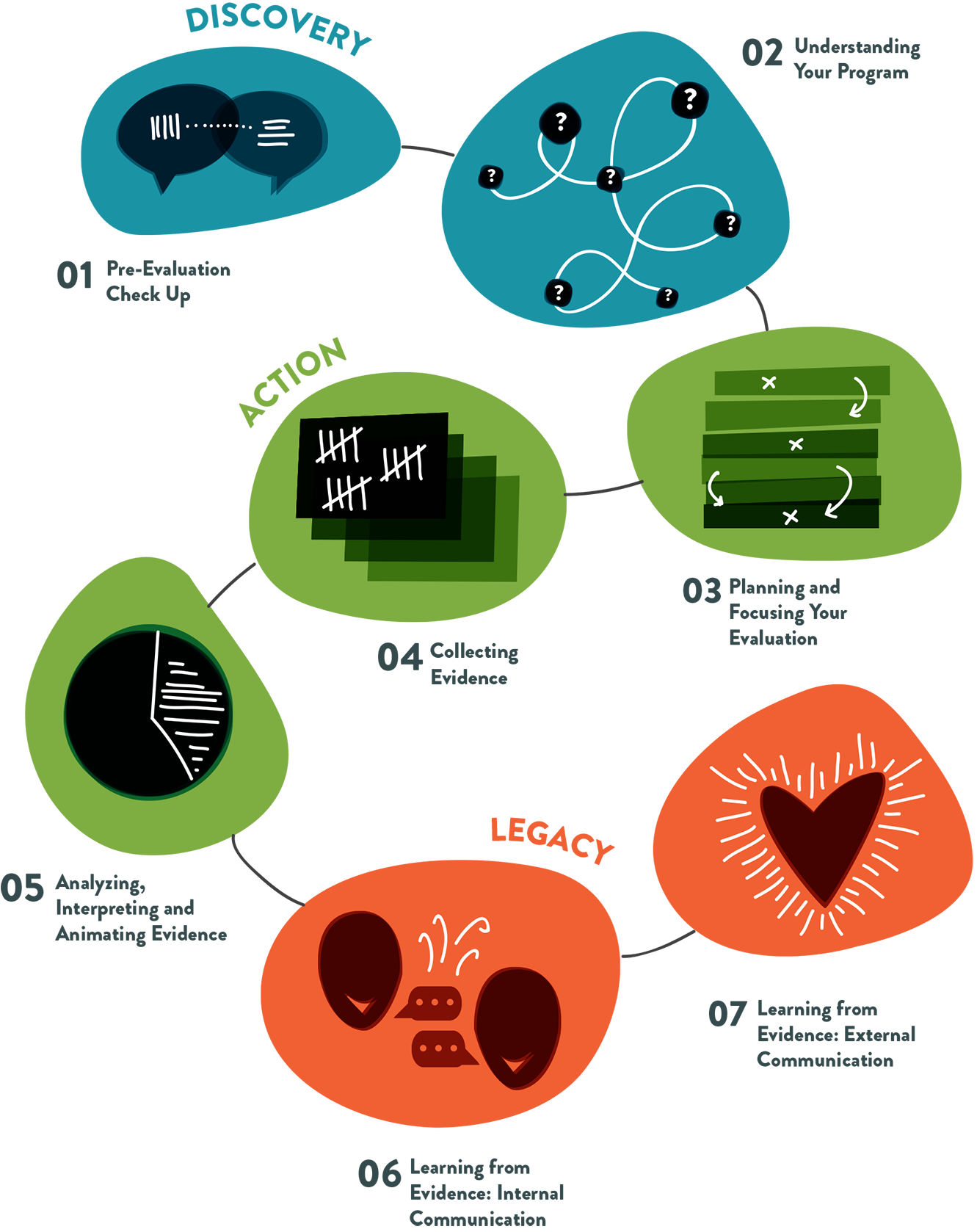YouthREX Framework for Evaluating Youth Wellbeing
The YouthREX Framework for Evaluating Youth Wellbeing offers a youth program a simple three-phase seven-step process for developing an evaluation plan, implementing the plan and using the findings to improve the program and promote the wellbeing of youth participants.
PHASE 1: DISCOVERY
Explore the steps.
STEP 01 PRE-EVALUATION CHECK UP Where is your organization on your evaluation journey and what Is your capacity to undertake this journey? What are your evaluation assets? What resources do you need to successfully complete this journey?
STEP 02 UNDERSTANDING YOUR PROGRAM USING LOGIC MODELING What is your program theory? What are your program components and your intended outcomes? A logic model is a visual representation of your program and how it is intended to work.
PHASE 2: ACTION
Explore the steps.
STEP 03 FOCUSING AND PLANNING YOUR EVALUATION Before you set out on your evaluation journey, gather your stakeholders and develop a roadmap (evaluation plan) for your evaluation journey.
STEP 04 COLLECTING EVIDENCE FOR A PROCESS & OUTCOME EVALUATION Collect data + stories to answer your process and outcome evaluation questions.
STEP 05 ANALYZING, INTERPRETING AND ANIMATING EVIDENCE Identify themes in your qualitative data, patterns or trends in your quantitative data and make sense of your findings.
PHASE 3: LEGACY
Explore the steps.
STEP 06 LEARNING FROM EVIDENCE: INTERNAL COMMUNICATION Turn the sense-making into learning that strengthens your program and improves the well-being of your youth participants. Use your evaluation insights and findings to inform decisions that improve your program.
STEP 07 LEARNING FROM EVIDENCE: EXTERNAL COMMUNICATION Share your evaluation findings in a variety of oral and written formats tailored to di erent audiences to help stakeholders understand the REAL story about your program.
GUIDING LENSES
Learn more.
A Learning Focused Lens Will the evaluation produce insights and findings that can be used by the youth program to improve and promote youth wellbeing?
A Youth-Engaged Lens Does the evaluation meaningfully engage youth participants?
A Contextualized Methods Lens Does the evaluation design+methods allow a youth program to tell rich stories of their processes and outcomes that acknowledge the complexity and dynamism of youth work?

Want to learn more?
Visit our interactive Evaluation Toolkit, and walk through each of the three phases and seven steps. Access tools and other resources while you're there!
